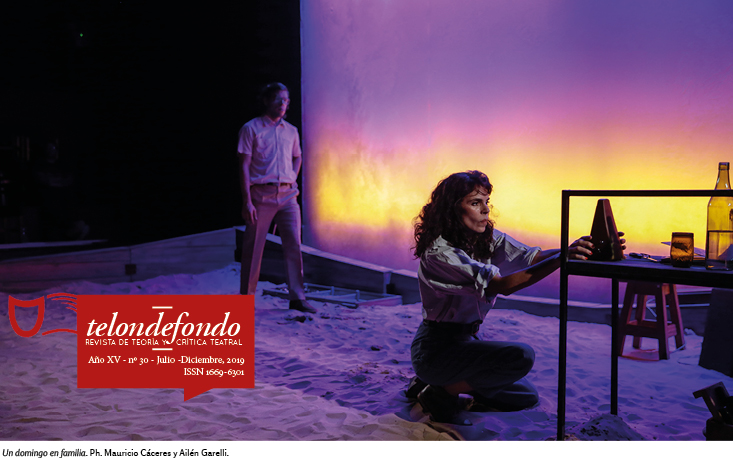Biodrama and Historical Theatre: between Fragment and Translation
Abstract
Traditional dramatic theatre, based on the Aristotelian idea of mimesis, narrates stories that, regardless of their particular plot, always have a beginning, a middle and an end. This theatre is presented as a mirror of reality. The Aristotelian units order the chaos of human existence and introduce the reassuring illusion of control over time and over life throughout its permanent unfolding. But this Aristotelian notions are called into question in postdramatic theatre, where theatre no longer seeks to be the mirror of reality, its faithful and detailed reproduction. In La escena posdramática [The postdramatic scene] (2017), Beatriz Trastoy explains that contemporary Argentine theatre focuses on metadramatic questions and problematizes theatrical theory and practice. According to the author, postmodern theatre does not reflect upon the characters and their actions, but upon the theatrical activity itself. In this essay, basing ourselves on the notions of “translation” (Trastoy) and “fragment of life” (Jean-Pierre Sarrazac), we analyze two contemporary Argentine plays that spotlight the tensions between fiction and reality: Mi mamá y mi tía by Vivi Tellas and El pasado es un animal grotesco by Mariano Pensotti.Downloads
Los autores/as que publiquen en esta revista aceptan las siguientes condiciones:
-
Los autores/as conservan los derechos de autor y ceden a la revista el derecho de la primera publicación, con el trabajo registrado con Licencia Creative Commons Atribución-NoComercial-CompartirIgual 4.0 Internacional, que permite a terceros utilizar lo publicado siempre que mencionen la autoría del trabajo y a la primera publicación en esta revista.
-
Los autores/as pueden realizar otros acuerdos contractuales independientes y adicionales para la distribución no exclusiva de la versión del artículo publicado en esta revista (p. ej., incluirlo en un repositorio institucional o publicarlo en un libro) siempre que indiquen claramente que el trabajo se publicó por primera vez en esta revista.
-
Se permite y recomienda a los autores/as a publicar su trabajo en Internet (por ejemplo en páginas institucionales o personales).











